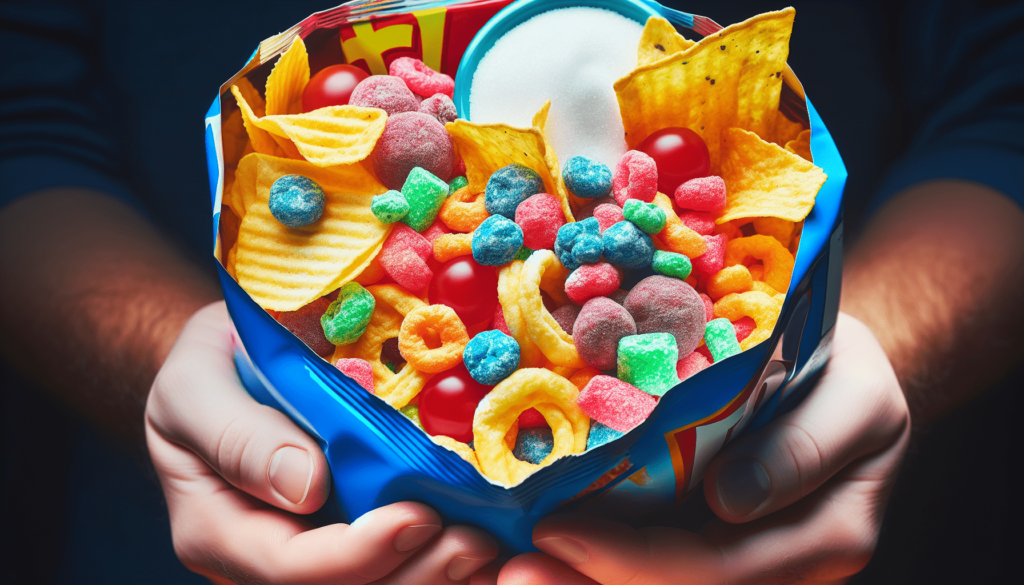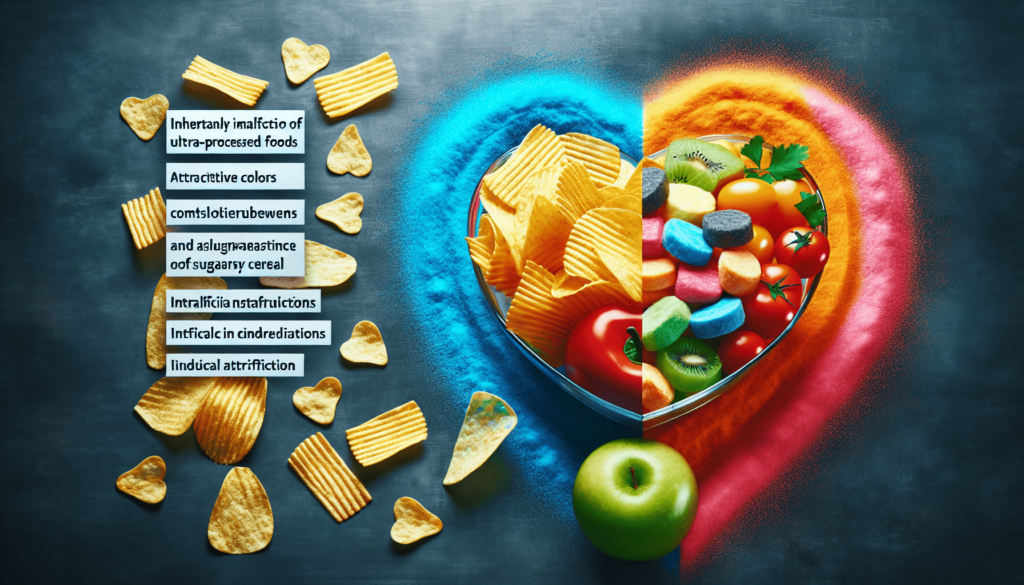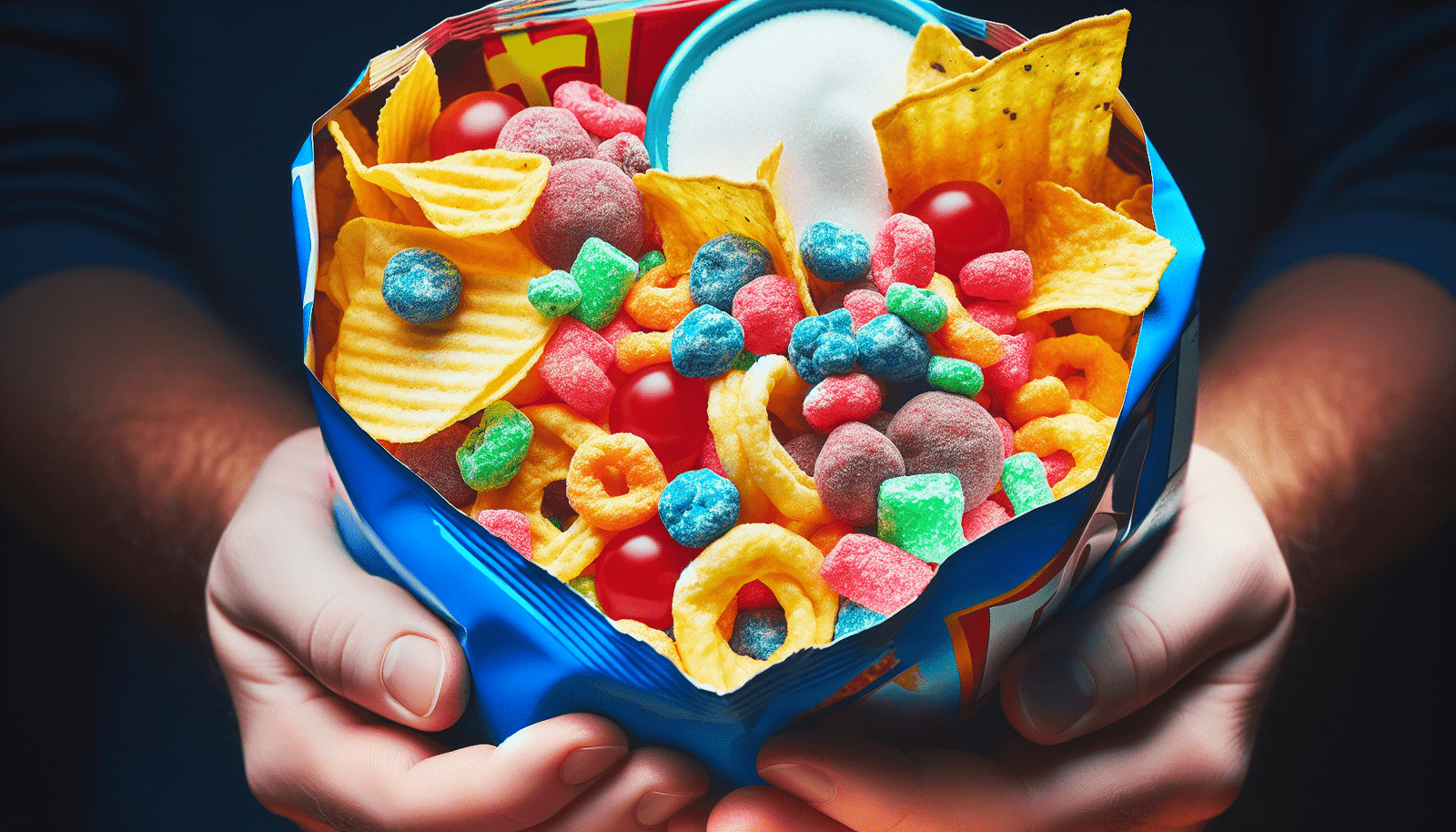Welcome, dear reader, to an eye-opening exploration of the downside of ultra-processed foods. In today’s fast-paced world, convenience often takes precedence over nutrition, but at what cost? Throughout this article, we will delve into the potential negative effects of consuming ultra-processed foods on your health and well-being. From increased risk of chronic diseases to a lack of essential nutrients, you will gain valuable insights into why opting for whole, unprocessed foods may be the key to better health. Join us on this journey to discover how your food choices can truly make a difference in your overall wellness. Have you ever wondered about the impact ultra-processed foods have on your health? Let’s explore the downside of these convenient but potentially harmful food choices.

Understanding Ultra-Processed Foods
Ultra-processed foods are products that have been significantly altered from their original form through the use of industrial processes and additives. These foods often contain high levels of sugar, salt, unhealthy fats, and additives such as artificial colors and flavors. Examples of ultra-processed foods include sugary drinks, packaged snacks, instant noodles, and fast food.
Why Are Ultra-Processed Foods Popular?
Ultra-processed foods are popular due to their convenience and affordability. They are widely available, require minimal preparation, and come in attractive packaging. However, the downside of these foods lies in their negative impact on overall health.
Negative Effects of Ultra-Processed Foods
Consuming ultra-processed foods on a regular basis can have several negative effects on your health. Let’s delve into some of the most common drawbacks associated with these products.
Nutrient Deficiency
Ultra-processed foods often lack essential nutrients such as vitamins, minerals, and fiber. Instead, they are high in empty calories, leading to a diet that is lacking in important nutrients. This can increase the risk of deficiencies and contribute to various health problems over time.
Weight Gain and Obesity
Due to their high levels of added sugars, unhealthy fats, and refined grains, ultra-processed foods can contribute to weight gain and obesity. These products are often calorie-dense and low in satiety, making it easy to overconsume them without feeling full. This can result in a surplus of calories and lead to weight gain over time.
Increased Risk of Chronic Diseases
A diet high in ultra-processed foods has been linked to an increased risk of chronic diseases such as heart disease, type 2 diabetes, and certain types of cancer. The excessive consumption of added sugars, unhealthy fats, and artificial ingredients found in these products can have a negative impact on metabolic health and overall well-being.
Digestive Issues
Ultra-processed foods are often low in fiber, which is essential for digestive health. A diet lacking in fiber can lead to constipation, bloating, and other digestive issues. Additionally, the high levels of additives and preservatives in these products can disrupt the balance of gut bacteria, further exacerbating digestive problems.
Poor Mental Health
Research suggests that a diet high in ultra-processed foods may be linked to poor mental health outcomes, including depression and anxiety. The artificial ingredients, preservatives, and additives found in these products can affect brain function and mood regulation, potentially worsening mental health conditions over time.
Environmental Impact
In addition to negatively impacting human health, ultra-processed foods also have a significant environmental impact. The production and packaging of these products contribute to greenhouse gas emissions, deforestation, and water pollution. By reducing consumption of ultra-processed foods, we can help reduce our carbon footprint and promote sustainable food choices.
Making Healthier Choices
Despite the downsides of ultra-processed foods, making healthier choices is possible. Here are some tips to help you reduce your consumption of ultra-processed products and improve your overall health.
Read Labels Carefully
When grocery shopping, take the time to read the labels of products carefully. Look for items with short ingredient lists that contain recognizable and whole foods. Avoid products that are high in added sugars, unhealthy fats, and artificial additives.
| Ingredient | Avoid | Alternative |
|---|---|---|
| High-fructose corn syrup | Sugary drinks, packaged snacks | Fresh fruit, unsweetened beverages |
| Artificial colors and flavors | Packaged desserts, candies | Homemade treats using natural ingredients |
| Hydrogenated oils | Processed baked goods, fried snacks | Healthy fats like olive oil, avocado |
Cook from Scratch
One of the best ways to reduce your consumption of ultra-processed foods is to cook meals from scratch using whole ingredients. This not only allows you to control what goes into your food but also helps you appreciate the flavors of fresh ingredients. Try meal prepping on weekends to make cooking during the week more manageable.
Choose Whole Foods
Opt for whole foods such as fruits, vegetables, whole grains, nuts, seeds, and lean proteins whenever possible. These foods are naturally nutrient-dense and provide essential vitamins, minerals, and fiber without the added sugars and unhealthy fats found in ultra-processed products.
| Food Group | Ultra-Processed Option | Whole Food Option |
|---|---|---|
| Snacks | Packaged chips | Fresh veggies with hummus |
| Beverages | Sugary soda | Sparkling water with lemon |
Limit Fast Food and Takeout
While convenient, fast food and takeout are often high in calories, unhealthy fats, and sodium. Limit your consumption of these options and instead focus on preparing meals at home using fresh ingredients. Consider healthier alternatives such as meal delivery services that offer balanced and nutritious options.
Mindful Eating
Practicing mindful eating can help you become more aware of your food choices and eating habits. Pay attention to your hunger and fullness cues, chew your food slowly, and savor each bite. By being present during meals, you can foster a healthier relationship with food and make more conscious choices.
Conclusion
While ultra-processed foods may be convenient, they come with a host of negative effects on health. By understanding the downsides of these products and making healthier choices, you can improve your overall well-being and reduce your risk of chronic diseases. Remember to prioritize whole, nutrient-dense foods and cook meals from scratch whenever possible. Your body will thank you for making these positive changes to your diet.


